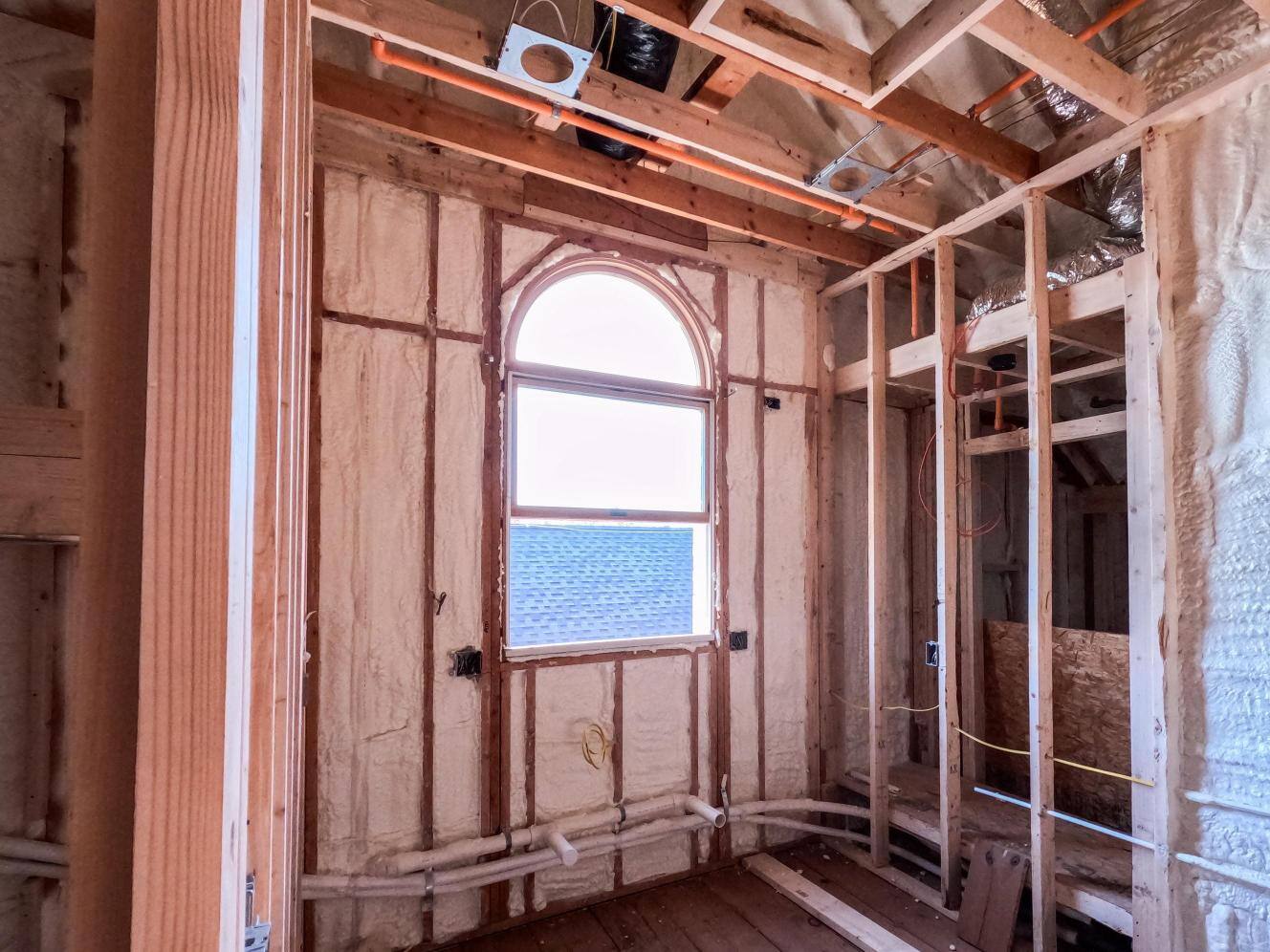Search for topics or resources
Enter your search below and hit enter or click the search icon.

If you're on the fence about getting spray foam insulation, you probably want to verify everything you've heard about the insulation. Does it have a high R-value? Will it last for the lifetime of your home? Can spray foam actually stop air leakage?
South Central Services has insulated hundreds of homes around Greencastle, PA, with spray foam. One of the most important features of spray foam is its ability to create an air barrier. Spray foam really is air impermeable, and this article will explain how.
By the time you finish reading, you will understand:
Don't have time to read right now? Check out everything you need to know at a glance.
The goal of an air barrier is to stop air leakage. Most homes are constructed with air leaks. In more traditional and historic homes, this air leakage is attributed to "letting the house breathe." More modern homes still struggle with air leaks because of how they are constructed.
When spray foam insulation is installed, it is spray-applied to a surface. Spray foam adheres to that surface, holding in place. Any gaps or cracks in that surface have spray foam essentially glued to them. Air leakage is stopped since spray foam is stuck tightly to the surrounding substrates.
The air impermeability of spray foam becomes even more evident when we compare spray foam to other insulations. Blown-in insulation, for example, is loosely applied in a layer on an attic floor. There is no adhesion, and the product settles over time. Air is welcome to leak through the blown-in particles.

Even when installed correctly, fiberglass batts don't stick in place. Batt insulation can sag over time. Air can pass around any cracks and crevices in batt insulation. Not to mention, air can also pass directly through fiberglass batts.

Most types of foam board aren't air permeable, but air can leak through any seams in the foam board that aren't sealed with silicone caulking or can foam.

Much like vapor permeability, air permeability is measured on a spectrum. Some materials allow air to pass through more easily than others. Air permeability is more complex than allowing or not allowing air to pass through. If it were, there would not be any calculation or variation in air permeability. There would simply be a yes or no.
Spray foam insulation is only air-impermeable when installed correctly. A contractor must spray a certain amount of foam to achieve an airtight seal. If you examine technical data sheets for spray foam products, you will see an air-impermeable rating at a certain insulation depth.

For closed cell spray foam, an inch is enough to create an air barrier. Open cell spray foam is a less dense product, requiring a bit more product to qualify as an airtight seal. For this Carlisle Spray Foam Insulation product, less than 0.02 perms of air can pass through at a depth of 3.5 inches.
Even if spray foam initially offers an airtight seal, how can you be confident that air leakage won't occur over the product's lifetime?
You can trust that spray foam stays airtight because it does not move. Other insulations settle and sag, creating gaps and inviting air leakage. Spray foam insulation is essentially glued in place. Disturbing or disrupting spray foam insulation takes significantly more effort than a batt or blown-in product.
If spray foam isn't going anywhere, it stands to reason that its air barrier will stay put, too.
Air permeability is a spectrum that materials can be tested for. Some materials allow air to pass through easily, while others make air leakage difficult. Spray foam insulation can create an airtight seal when installed at specific depths. As a general rule, 1 inch of closed cell and 3.5 inches of open cell spray foam is enough to ensure an air barrier.
When we say that spray foam is air-impermeable, it means that less than 0.02 perms of air can infiltrate through the insulation.
Now that you understand how spray foam delivers an airtight seal, your next step is to:
Disclaimer: While we strive to publish information accurate to building science, local building codes and standards supersede our recommendations.
Kilian has co-owned and operated South Central Services for 8 years. He is passionate about community involvement. In his spare time, he enjoys being with his family, playing ice hockey, and going fishing with friends.
Topics: